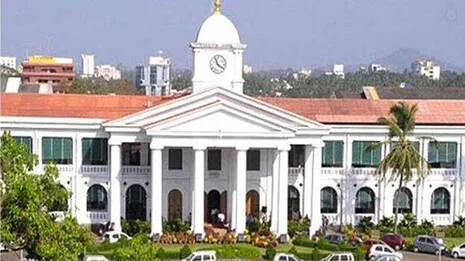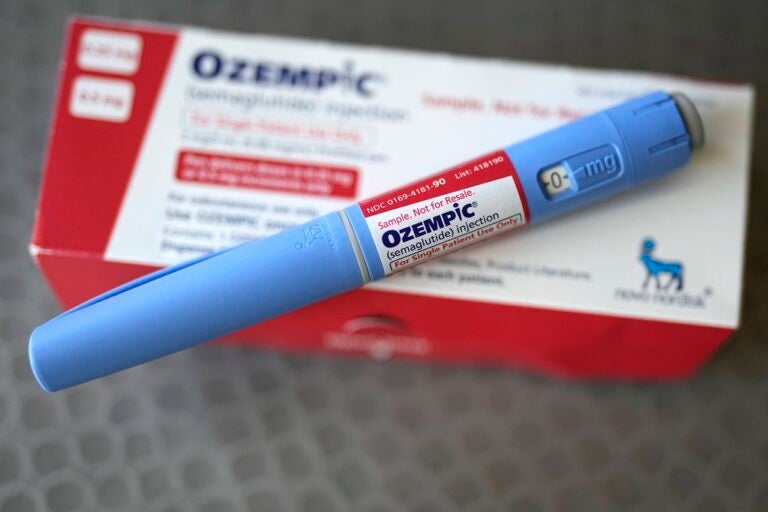
Whether you are a type-2 diabetic who has been prescribed Ozempic to help you to manage blood sugar levels, or are obese and taking Mounjaro or Wegovy for for weight loss and weight management, medics are warning revellers to be cautious about drinking alcohol while taking GLP-1 receptor agonist drugs this festive season. Dr Alexandra Sowa, author of The Ozempic Revolution (out January 16, Harper Collins, £25 ) warns that these medications could impact your ability to drink and be merry. “While taking these drugs you may be eating less and drinking less than you did before you started your prescription,” she explains.
“I do find that patients will say that when they’re on these medications and they drink, they feel the alcohol more. That makes sense, because these drugs may slow the speed at which your stomach empties, and you aren’t generally consuming as much food to absorb the alcohol as you might have done previously.” Dr Sowa recommends a test run for anyone new to the drugs.

“The one thing I always tell my patients is to try having one alcoholic drink in the days before an evening out with friends or colleagues, just to see how it affects them,” says Dr Sowa. “In anticipation of festive celebrations, I advise people to perhaps set aside a Friday night when they are staying home and don’t have to get up on the Saturday morning to test out their reaction to alcohol. “I suggest they try one glass of wine with dinner to see how they feel straight after drinking it, and also gauge how they are the following day too.
“This is because some of my patients have been telling me that, even if they have just one drink and feel fine in the moment, they can get a heightened sense of a hangover the next day. To avoid getting drunk quickly - and to skip hangovers - most of us know it’s wise to line our stomachs well before drinking alcohol. "But for those taking GLP-1 agonists, their appetite may not be at its usual levels and they might not be drinking enough water either," says Dr Sowa.
“It’s good to know if you’re one of those who, when combining GLP-1s with a glass of wine, might not feel well. That way, you know ahead of a big celebration if you should opt for a soft drink instead.” “I advise my patients to make sure that they’re eating enough and suggest focussing on foods that make them feel well, such as proteins and lighter foods, while staying away from processed carbohydrates.
Keeping well hydrated will also help people feel better when consuming alcohol.” There may be other issues when it comes to drinking and taking GLP-1 drugs, says Dr Sowa. "Some people experience nausea and diarrhoea as side effects of this type of medication and these could potentially be heightened with alcohol.
If you are someone who generally feels these things after drinking alcohol, you might feel them even more intensely while taking GLP-1 agonists, so you might decide it isn’t worth having even one glass of fizz at parties. “Interestingly, drugs like Ozempic are being studied for their ability to help people with alcohol reduction or cessation , so you may find you don't even have the same inclination or appetite for alcohol as you did before starting the prescription - that’s perfectly normal and healthy.” Forewarned is certainly forearmed, she adds.
“When it comes to the precautions, it’s really about knowing your response and making sure that you don’t ruin festive celebrations by leaning in to old behaviours, whether that might be too much food or too much alcohol, because you could end up regretting it the next day. “So take it slow, stay hydrated and make sure you’re eating regular meals, not skipping them ahead of a big celebration in order to ‘save up’ your calories – you absolutely can’t do that when taking GLP-1 drugs, especially if there’s alcohol involved. Because while I do think people can enjoy a drink this holiday season even if they’re taking this medication, they need to prepare their body and make sure that they’re not overdoing it.
” A spokesperson for Novo Nordisk , the pharmaceutical company that manufactures Ozempic and Wegovy, says “Patient safety is of the utmost importance to Novo Nordisk. We recommend patients take these medications for their approved indications and under the supervision of a healthcare professional. "Treatment decisions should be made together with a healthcare provider who can evaluate the appropriateness of using a GLP-1 receptor agonists based on assessment of a patient’s individual medical profile.
We continuously collect safety data on our marketed GLP-1 RA medicines and work closely with the authorities to ensure patient safety. As part of this work we continue to monitor reports of adverse drug reactions through routine pharmacovigilance. “We recommend that any patients experiencing side effects while taking GLP-1 RAs including Wegovy (semaglutide injection) or Ozempic (semaglutide injection) report them to their healthcare provider and via the MHRA Yellow Card scheme ( yellowcard.
mhra.gov.uk ).
Adverse events should also be reported to Novo Nordisk via the Customer Care Centre on 0800 023 2573." A spokesperson for Lilly, the manufacturers of Mounjaro added, "Mounjaro (tirzepatide) should only be used when prescribed by a licensed healthcare professional. Patients should read the Patient Information Leaflet and follow guidance from their healthcare professional.
If anyone is experiencing side effects when taking a Lilly medicine, they should talk to their healthcare professional." The Ozempic Revolution by Dr. Alexandra Sowa is published on January 16 (£25; Harvest, an imprint of HarperCollins).














